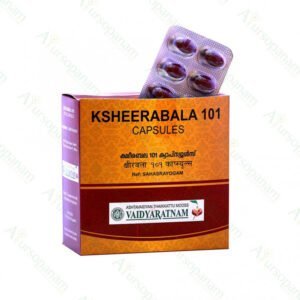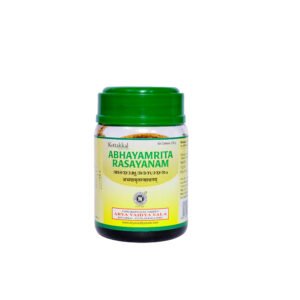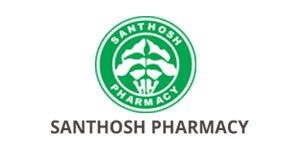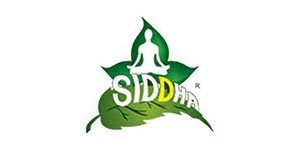The term Sukumara in Ayurveda signifies an individual of delicate consistency. This formulation can be safely used even in individuals with sensitive koshta and weakend agni, to revive and rejuvenate the entire system. Sukumaram Kashayam normalises Apana Vata function with particular affinity towards the renal apparatus and reproductive organs in females.
Kashaya or herbal decoctions harness the healing properties of herbs and roots in a mild and easily absorbable water base. The tablet modification allows easy transportation and administration, without compromising on its therapeutic benefits.
Features & Benefits
- Sukumaram Kashayam is a versatile formula mentioned classically in the context of Apana Vayu Vaigunya and pathological tissue growth in the abdomen.
- The decoction has established efficacy in managing signs and symptoms of benign tumors and growths in the abdomen, internal abscess, hepatomegaly and splenomegaly.
- It balances the Tridoshas. Sukumaram Kashayam has specific affinity towards the pelvic region and the reproductive system.
- It boosts renal function. It relieves whole body oedema and water retention.
- It improves endocrine function and bowel motility. It cures constipation and irritable bowel.
- Sukumaram Kashayam imparts vitality and vigor. It improves fertility in women. It is very effective in managing menstrual disorders.
Dosage and Instructions
Adult: 15-20 ml of Sukumaram Kashayam mixed with 45-60 ml of boiled and cooled water, twice daily on empty stomach.
Child: 10-15 ml of Sukumaram Kashayam mixed with 30-45 ml of boiled and cooled water, twice daily on empty stomach.
Suitable for all ages.
Key Ingredients
Punarnava (Boerhaavia diffusa)
The word Punarnava means that which rejuvenates. It is mainly used in painful as well as oedematous conditions. The properties include immunomodulation, hepatoprotection, antifibrinolytic, anticancer activity, antidiabetic activity, anti-inflammation, and diuresis. Thus useful in treating cancer, jaundice, dyspepsia, inflammation, ophthalmic, enlargement of spleen, abdominal pain, and as an anti-stress agent.
Vilwa (Aegle marmelos)
It can be found as the favorite of Lord Shiva and thus found in the temples. Also known as bilwa, the whole part of the plant is used for medicinal purposes. Antidiarrhoeal, antimicrobial, antiviral, radioprotective, anticancer, chemopreventive, antipyretic, ulcer healing, antigenotoxic, diuretic, antifertility, and anti-inflammatory properties.
Brihati (Solanum indicum)
It is one among the Dashamoolas. It is used in the treatment of respiratory ailments, dropsy, heart diseases, chronic fever, colic, scorpion stings, difficulty in urination, and worm infestation.
Agnimantha (Premna Integrifloria)
Agnimantha is used in the treatment of all types of Vata Disorders (diseases related to the nervous and musculoskeletal system), inflammatory disorders, neuralgia, rheumatoid arthritis, anemia, piles, constipation, common cold, and loss of appetite.
Satavari (Aspsragus Recemosus)
The Sanskrit word means a plant with a hundred roots. It is mainly used for long time as the hormone balance and a general tonic to uplift female health and libido. It also manages diabetes mellitus, prevents high cholesterol level and helps in the treatment of bacterial and fungal infections, oedema, infertility depression, and cancer.
Darbha (Desmostachya Bipinnata)
Commonly known as halfa grass, it is widely used in religious customs. It is used in skin diseases, diarrhea, renal calculi, dysmenorrhea, and improving breast milk during lactation.
Shyonaka (Oroxylum Indicum)
Commonly known as Indian caper, it is one among the Dashamoolas. It is anti-inflammatory and analgesic in nature. It is effective in dysentry and diarrhoea.
Shalaparni(Desmodium gangeticum)
One among the dashamoolas, its properties include analgesic, diuretic and anti-inflammatory. It is used in postnatal complaints, diarrhoea, chronic fever, biliousness, cough, vomiting, and asthma.
Prishnaparni (Uraria Picta)
It is one among the Dashamoolas. with properties of anti inflammatory, analgesic, antiemetic, aphrodisiac it is used in different preparations. It is effectively used in fracture conditions also.
Kantakari(Solanum Xanthocarpum)
Commonly known as Indian night shade, it is one among the Dashamoolas. It is widely used in cough, asthma and other respiratory tract conditions. Kantakariextract is also used in dysuria.
Gokshura (Tribulus Terrestris)
It is a natural aphrodisiac and has diuretic property thus its used in urinary disorders Used to tone muscles before childbirth, to cause an abortion and to stimulate milk flow.
Ashwagandha (Withania somnifera)
Commonly known as Indian ginseng, it can reduce anxiety and stress, help fight depression, boost fertility and testosterone in men, and even boost brain function. Supplementing with Ashwagandha may be an easy and effective way to improve your health and quality of life.
Eranda(Ricinus communis)
It is commonly known as castor oil plant. Since ancient times castor seed and castor oil is used to cure rheumatism, worm infestation and abdominal disorders. External application of the oil relieves boils and other skin disorders.
Sara (Saccharum Spontaneum)
Traditionally used in making ropes and baskets, it is one of the best nutritious and drought tolerant species of grasses. useful in burning sensations, thirst, erysipelas, blood troubles, urinary complaints, eye diseases.
Ikshumoola (Saccharum Officinarum)
Commonly known as the sugarcane, its roots are used for the therapeutic purposes. Having properties aphrodisiac, laxative, cooling, demulcent, antiseptic, and tonic. Sugarcane juice is very useful in jaundice conditions.
Pippali (Piper longum)
Commonly called as Indian long pepper, it us effective in different respiratory tract diseases. It provides relief from cough and congestion and also helps in removing phlegm deposits from the respiratory tract. Also improves appetite and digestion, as well as treat stomachache, heartburn, indigestion, intestinal gas, diarrhea, and cholera.
Pippalimoola (Roots of Piper Longum)
Commonly called as Indian long pepper, it is effective in different respiratory tract diseases. It provides relief from cough and congestion and also helps in removing phlegm deposits from the respiratory tract. Also improves appetite and digestion, as well as treat stomachache, heartburn, indigestion, intestinal gas, diarrhea, and cholera.
Yashtimadhu (Glycyrrhiza glabra)
Roots as choorna are mainly used for the Ayurvedic preparations as well as single drug. Yashtimadhu oil externally used for various skin conditions as well as decoctions is used internally for respiratory disorders and digestive disorders.
Shunti(Zingiber officinale)
Its the dry form of ginger. Effective drug to relief from flatulence and bloating of abdomen. Dry ginger powder helps in digestion and elimination of toxins. It acts as an anti diarrheal and anti dysenteric.
specialty:
100% Natural. Purely herbal. Vegetarian.





















































Ratings & Customer Reviews
Reviews
There are no reviews yet.